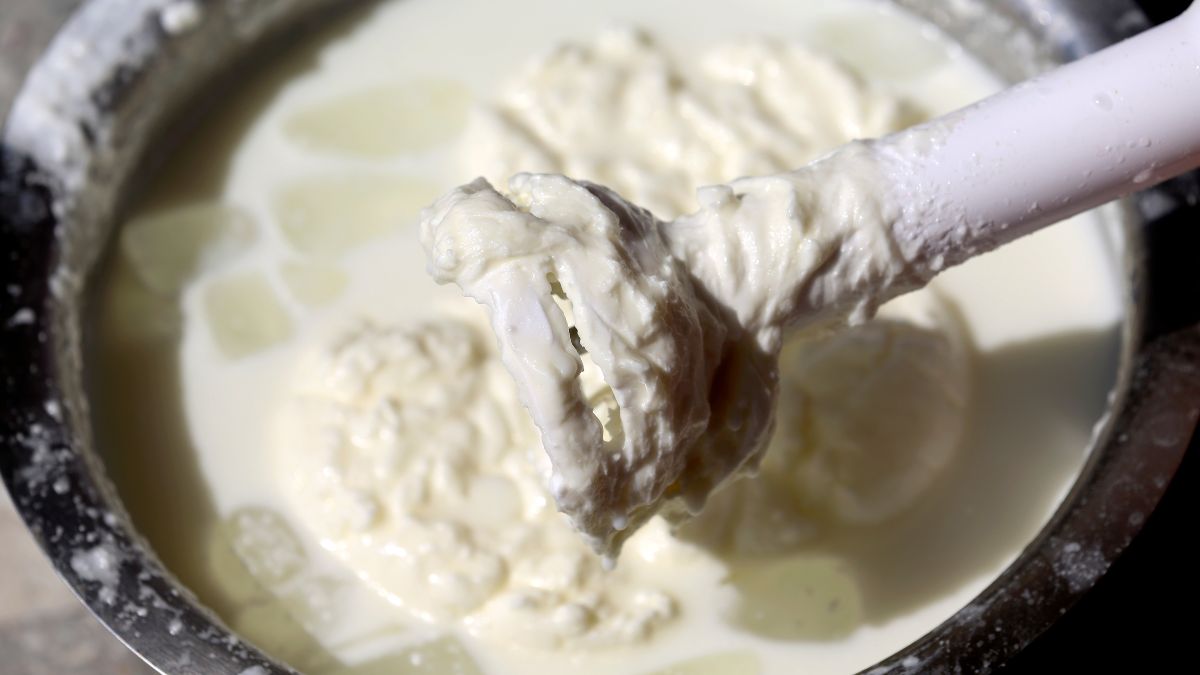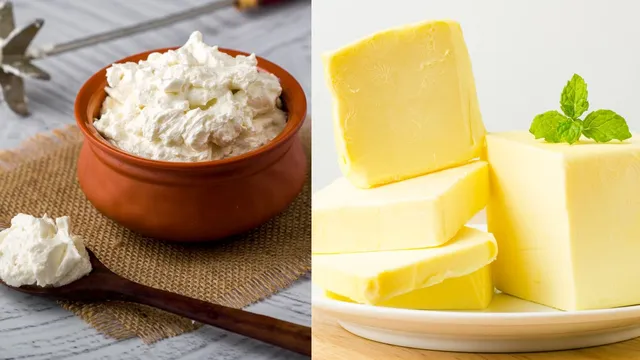- By Iram Hussain
- Tue, 24 Sep 2024 10:12 AM (IST)
- Source:JND
Butter or makhan is usually a beloved breakfast staple that elevates toast, pancakes and waffles to new heights. Its culinary uses extend beyond morning meals, adding richness to sauces, baked goods and sauteed dishes. Comprising fatty acids, vitamins A, D, E and K and conjugated linoleic acid (CLA), butter possesses potential health benefits, including improved nutrient absorption and support immune system. Globally, two popular butter options that dominate are yellow butter with its distinctive colour and a bit of salty flavour and white butter boasting a neutral taste and lower saturated fat content.
Both variants cater to diverse tastes and recipes, making butter an indispensable ingredient worldwide. But have you ever wondered the difference between the two? Although both forms of butter are widely consumed so, here we've compiled some reasons that will compel you to choose white butter over yellow butter.
Reasons To Use White Butter
Low Saturated Fat
White butter boasts a lower saturated fat content that aids in reducing cholesterol and calorie intake. Its neutral flavour and higher water content make it ideal for baking, cooking and spreading.
Low Cholesterol Levels
With significantly lower cholesterol levels, white butter reduces the risk of cardiovascular disease. Its lighter composition and neutral flavour make it perfect for daily use, allowing you to enjoy the richness of butter without compromising on wellness.
Lactose-Sensitive Diet
For those with lactose intolerance, white butter is a way to go as its lower lactose content makes it a great option for easy digestion than yellow butter. White butter's processing method removes more milk solids while reducing lactose levels. Thus, it makes an ideal substitute for lactose-sensitive diets.

White butter has less water content (Image Credits: Canva)
Naturally Processed
Unlike yellow butter, white butter undergoes gentle churning, preserving natural nutrients. Free from artificial colourants and additives white butter ensures a pure, chemical-free spread. Hence, it can be enjoyed for its wholesome and natural goodness.
Ideal For Cooking And Baking
White butter's reduced moisture makes it ideal for cooking and baking. It withstands high heat, prevents sogginess and ensures crispy textures. Perfect for sauteing, frying and flaky pastries, white butter's adaptability makes it a culinary essential.
ALSO READ: 5 Easy Ways To Include Peanut Butter In Your Everyday Breakfast

